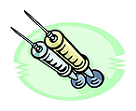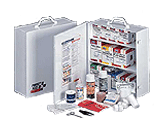Links to Remember
Basic Health and Safety
In this section, you will find information on how to stay well while in Hungary and while traveling to other countries. The process of wellness starts before you go abroad with a visit to your doctor. You may need to get inoculations to protect you from various illnesses before traveling. You will also learn some tips about food and water safety.
1. General Travel Safety
Planning for a Healthy and Safe Time Abroad: Learn all you can about the health and safety issues of all the countries where you plan to study and travel. This includes reading about the cultural and political climate of those countries, as well as learning about how others view people from your country, race, ethnic group, religion, gender and sexual orientation.
2. Travel Safety in Hungary
Planning for a Healthy and Safe Time in Hungary: Preparation for your time in Hungary should include an understanding of the current political, cultural and religious events of the country as well as the region, and an awareness of the social climate. Students are advised to be alert to their surroundings, and be particularly aware of any health and safety advisories for the areas in which they will be studying.
Getting a Balanced Perspective on Health and Safety in Hungary: In order to gain a more objective perspective on how safe travel to in Hungary is, view the health and safety reports on in Hungary from a variety of sources. We have provided a table below with links (on the left) to the Australian, Canadian and British governments' country advisories on in Hungary. On the right side of the table are links to those same governments' perspectives on safety in the United States, which you can use to compare health and safety issues in Hungary and the United States.
3. Important Health and Safety Issues
Visit this page to see the top ten health and safety issues you should be aware of before you depart for in Hungary and the other countries to which you may be traveling.
 Illnesses, Diseases, and Inoculations: Find out about the various illnesses that might be more common in Hungary or the regions and countries to which you will be traveling. Get the appropriate shots and pills, and take the appropriate medications with you if your doctor thinks it's necessary. Find out about any potential side–effects of shots and pills that you may take. For information on illnesses that may be prevalent in Hungary, please see the CDC link in the Resources section of this Handbook.
Illnesses, Diseases, and Inoculations: Find out about the various illnesses that might be more common in Hungary or the regions and countries to which you will be traveling. Get the appropriate shots and pills, and take the appropriate medications with you if your doctor thinks it's necessary. Find out about any potential side–effects of shots and pills that you may take. For information on illnesses that may be prevalent in Hungary, please see the CDC link in the Resources section of this Handbook.- Physicals and Check–ups: Get a complete physical, eye exam and dental check–up before going to in Hungary. While health care is generally good in Hungary, the quality of dental and medical care might be different in the various countries or regions you may visit. Also, they could possibly be more expensive than similar care in the United States.
 Can You Drink the Water?: Find out if water is generally safe to drink in different regions of in Hungary and in the countries to which you will be traveling. To avoid diarrhea and other bacteria, purify questionable water before you drink it. Make sure water bottles come sealed when you buy them. Remember that ice can also be unsafe, as well as the water you use to brush your teeth.
Can You Drink the Water?: Find out if water is generally safe to drink in different regions of in Hungary and in the countries to which you will be traveling. To avoid diarrhea and other bacteria, purify questionable water before you drink it. Make sure water bottles come sealed when you buy them. Remember that ice can also be unsafe, as well as the water you use to brush your teeth.- Food Safety: If you get diarrhea or food poisoning, remember to drink plenty of fluids to stay hydrated. As with any illness, consider seeing a doctor if your condition worsens. Give your body time to adjust to new types of foods you will be eating.
- Laws and Codes of Conduct: Make yourself aware of both the rules and regulations of your study abroad program sponsor, and the local laws and customs of in Hungary and the countries which you will be visiting. Understand that you will not only have to conform to the legal system of in Hungary, but also obey the codes of conduct required of program participants. Also recognize that certain laws may vary from region to region or even city to city.
 Mental and Physical Health: Consider your own mental and physical health issues when applying for a study abroad program, and make all your necessary health information available to your program's administrators in the U.S. and abroad so they can assist you with any special needs, or advise you on the risks you might face. Study abroad may include both physical and mental challenges for students, so make sure you establish a support network of program administrators, family and friends who can help you. According to the U.S. Department of State, "Good medical care is widely available."
Mental and Physical Health: Consider your own mental and physical health issues when applying for a study abroad program, and make all your necessary health information available to your program's administrators in the U.S. and abroad so they can assist you with any special needs, or advise you on the risks you might face. Study abroad may include both physical and mental challenges for students, so make sure you establish a support network of program administrators, family and friends who can help you. According to the U.S. Department of State, "Good medical care is widely available." Prescriptions: To be cautious, get a doctor's signed prescription for any medication you have to bring with you to in Hungary, and get it translated into in Hungary. However, if you can, take a supply large enough to cover your stay while abroad, just in case you can't fill your prescription while abroad. Contact the U.S. Embassy in Hungary or your program administrator/advisor to find out if and how much U.S. prescription medication is allowed into in Hungary. Also include a copy of your prescription for your glasses or contact lenses. Bring an extra pair of glasses.
Prescriptions: To be cautious, get a doctor's signed prescription for any medication you have to bring with you to in Hungary, and get it translated into in Hungary. However, if you can, take a supply large enough to cover your stay while abroad, just in case you can't fill your prescription while abroad. Contact the U.S. Embassy in Hungary or your program administrator/advisor to find out if and how much U.S. prescription medication is allowed into in Hungary. Also include a copy of your prescription for your glasses or contact lenses. Bring an extra pair of glasses.- First–Aid Kit: Consider a well–stocked first–aid kit as a first line of defense. Some items to include are: sunscreen, bandages, flashlight, sterile pads, insect repellent, adhesive tape, aspirin, antacid, anti–diarrhea tablets, anti–malarial medication, extra bottled water, feminine protection, condoms, rubber gloves, etc.
 Fitness and Exercise: Try to get fit in the time you have before departing for in Hungary. A healthy body can help you fight off illness and recover faster if you do get sick. Even though it may be harder to follow a structured workout routine, try to stay fit while in Hungary. Exercise also helps to increase energy levels and combat depression. Get a good pair of comfortable walking shoes. Without access to a car or public transportation in Hungary, you may have to do quite a bit of walking. Break in your shoes before you go.
Fitness and Exercise: Try to get fit in the time you have before departing for in Hungary. A healthy body can help you fight off illness and recover faster if you do get sick. Even though it may be harder to follow a structured workout routine, try to stay fit while in Hungary. Exercise also helps to increase energy levels and combat depression. Get a good pair of comfortable walking shoes. Without access to a car or public transportation in Hungary, you may have to do quite a bit of walking. Break in your shoes before you go.- Emergency Contacts: Keep your program staff and your emergency contacts at home and in Hungary well informed of your whereabouts and activities, and provide these people with copies of your important travel documents (i.e. passport, visa, plane tickets, traveler's checks, and prescriptions, etc.).
- Air Travel: When you travel by air, drink a lot of non–alcoholic fluids, stay away from caffeine, eat light, and stretch often to avoid jetlag. Many airlines are now required to show an in–flight video of stretching exercises you can do on the plane in order to avoid the potential formation of blood clots, which can be caused by cabin pressure. A direct flight is usually easier for most travelers, but flights broken up by stops can also lessen jet lag.
- Transportation: Accidents involving in–country travel, whether by air, bus, train, taxi, car, etc., are a major cause of injury to students abroad. It is important to understand what the safe modes of travel are in Hungary and in the countries to which you plan to travel. For more information on transportation in Hungary, please visit the U.S. Department of State.
- bus: The extent of your use of buses in Hungary depends to a large degree on what area of Hungary you are travelling in. While Hungary does have a good train system that connects all the main cities and towns in the country, buses are used to access those more remote areas (primarily in central and eastern Hungary known as the Great Plain as well as Southern Transdubia). Riding the buses in Hungary can enable you to see a side of Hungary that otherwise would not always be readily accessible to the visitor. There are two types of bus services in Hungary; long and short distance buses. Long distance buses are those inter city buses whose routes travel the length and breadth of Hungary. Short distance buses provide service either within a single city or between nearby cities. Long and short distance buses operate from separate stations but they are often situated next to each other. The bus stations are the pick up and drop off points for most routes and have information about bus schedules in Hungary. Travelling by bus is relatively cheap in Hungary. Tickets for buses are bought directly from the driver as you board the bus. The bus driver will give you the ticket, which you should keep for the duration of your journey.
- train_metro: Urban transport is well developed in Hungary, with efficient bus and, in many cities and towns, trolleybus services. Budapest, Szeged, Miskolc and Debrecen also have trams, and there's a three-line metro system and a suburban railway known as the HÉV in the capital. Every city and almost every major town in Hungary has a train station that connects it to the rest of the country. The railway system is designed so that Budapest acts as a connecting hub for all areas in Hungary, so often one has to pass through Budapest even if the final destination is not near Budapest. Two different types of trains in Hungary. Fast trains are those that service routes within a city or between cities but stop off at several stations along the way. Inter city trains are those that serve as connections usually between two major towns or cities, and do not take any stops on the way.
- air: There are no scheduled flights within Hungary. The cost of domestic air taxis is very expensive and, when you factor in the time at the airport, the trips can take almost as long as the train.
- cars: In order to rent a car, you generally must be at least 21 years old and have had your license. Drivers under 25 sometimes have to pay a surcharge. Most of the large international companies have offices in Budapest and there are local companies throughout the country. Driving conditions in Hungary are generally good. The roads are well paved and driving laws are strictly enforced. The road network is extensive, making most areas of Hungary accessible through driving. One should be aware of the potentially severe weather conditions such as heavy rain or fog, and drive appropriately. People in Hungary drive on the right side of the road.
- boats: From April to late October, you can take excursion boats on the Danube from Budapest to Szentendre, Vác, Visegrád and Esztergom or you can travel by hydrofoil from Budapest to Visegrád, Nagymaros and Esztergom between late May and early September. It is best to contact a tourism information center for more information on boat transportation.
- bicycle: Hungary’s landscape offers endless opportunities for cyclists: challenging slopes in the north, gentler terrain in Transdanubia and flat cycling on the Great Plain. However, finding bicycle rentals can be difficult. The best places to look are camping grounds, resort hotels or repair shops. Also, remember when planning your itinerary that bicycles are banned from all motorways and highways with a single digit, and bikes must be equipped with lights and reflectors.
For more health and safety information about driving abroad, the Association for Safe International Road Travel offers road travel reports, seasonal hazards, safety tips and common driver behaviors for travel abroad.
- Alcohol and Drugs: Use and abuse of alcohol and drugs abroad can increase the risk of accident and injury. Many study abroad accidents and injuries are related to the use and abuse of alcohol and drugs abroad. Violating drug laws in Hungary may result in very serious consequences. In some countries you may visit, being found guilty of violating drug laws can result in consequences as serious as death.
- Setting an Example: Set a good example. Remember you are like an ambassador for your U.S. college or university, as well as your culture and country. Behave in a way that is respectful of others' rights and well–being and encourage others to do the same.
4. Relevant Questions
- Who among the program staff should be informed of your travel plans, or who can serve as an emergency contact for your family back home?
- Who are your emergency contacts in the United States? Do they have copies of your important documents? Can they make decisions on your behalf if you are unable to do so yourself (do they have power of attorney)?
- What health recommendations has the Center for Disease Control and Prevention (CDC) recently made for the country of your choice and the countries to which you will be traveling?
- Do you have any dietary restrictions? If so, do they pose a problem while in the country of your choice?
- How much walking will you be doing in the country of your choice? How can you prepare yourself for higher levels of physical activity?
- What should you carry in a first aid kit?
- What are the general sanitary conditions in the country of your choice? What kinds of precautions are necessary when drinking water or eating local food?
- Are there any specific immunizations you must get before entering the country of your choice and the countries to which you will travel?
- If you have any pre–existing health conditions, or you need to carry special medications abroad, what should you do before you go abroad?
- With whom can you leave copies of your important health–related documents?
- Will your prescription drug(s) be legal and/or available in the country of your choice?
- What is the generic name, and a citizen of the country of your choice for your medication?
- Does the staff speak English, a citizen of the country of your choice, and other indigenous languages fluently to communicate the nature of any medical conditions? (Remember, many indigenous groups in the country of your choice might not speak a citizen of the country of your choice or English.)
- Can your program provide for any special needs you may have (wheelchair ramps, un–timed tests, etc.)?
- Do you have access to adequate medical facilities?
- What is the cost of typical medical services?
- What specific travel advisories has the U.S. Department of State recently issued for the country of your choice and the other countries to which you will be traveling?
- What types of crimes are common in the area/city where you will be studying and living?
- What activities increase the risk of accidents and injury abroad?
- How extensive, safe, and reliable is the public transportation system in the country of your choice and the others countries to which you will be traveling?
5. Checklist
- Before leaving, I have gotten a complete physical from my doctor.
- I have received all necessary immunizations required/recommended for entry to the countries I will visit, and I know where to obtain other inoculations abroad if needed later.
- I know who the emergency contact will be at the U.S. and in the country of your choice.
- I know who my emergency contact will be at home.
- I have asked whether or not the drinking water is safe to drink in the country of your choice.
- I know what precautions to take when eating local food.
- I have researched where to buy food that suits my dietary needs/restrictions (i.e. for vegetarians, diabetics, etc...).
- I know how extensive, safe and reliable the public transportation system is in the country of your choice.
- I am aware of the laws and codes of conduct that are likely to impact me.
- I understand that the use of alcohol and drugs increases my risk of accident and injury.
6. Resources
- AllAbroad.us – Health Mentors address any health concerns that students may have while overseas.
- CDC Traveler's Health Centers for Disease Control and Prevention
- Environmental Health Advice on how to deal with environmental hazards ranging from hurricanes to air pollution.
- Health Topics A–Z A continually updated list of disease and health topics.
- Regional Health Advisories A list by destination of the epidemics, diseases, and common infections.
- GlobalScholar.us: Go to Course 1, Module 9, Task 7 "Drug Issues Abroad" about researching drug issues in the country and to take into consideration your own prescription medications.
- Inter–Organizational Task Force: Guidelines for Responsible Study Abroad – Good Practices for Health and Safety Good Practices for Health and Safety – A task force of study abroad administrators developed a set of guidelines, which include fifteen points of responsibilities for program administrators.
- Language and Liability: The Linguistic Dimension of Health and Safety Abroad SAFETI On–line Newsletter article by Rodney Sangster, Regional Director of the University of California Education Abroad Program.
- National Mental Health Association: College Student and Depression Fact Sheets This site provides a brief background on issues related to college student mental health issues.
- Predeparture Health Training Handbook Introduction to safety concerns to think about before departing.
- Sara's Wish This site provides helpful safety tips on things to remember when traveling abroad.
- Screening for Mental Health, Inc. Provides resources for nationwide mental health screening programs and to support cooperation, professionalism, and accountability in mental illness screenings.
- Sexual Harassment and Prevention in College Students Studying Abroad SAFETI On–line Newsletter article by Nancy Newport, Licensed Professional Counselor and Consultant to the Peace Corps.
- StudyAbroad.com Handbook: Immunizations Brief notes on the need for immunizations prior to traveling.
- StudyAbroad.com Handbook: Prescriptions Summary recommendations for dealing with prescription medications abroad.
- Travel Clinic Information on travel related health matters.
- Treatment of Sexual Assault in College Students Studying Abroad SAFETI On–line Newsletter article by Nancy Newport, Licensed Professional Counselor and Consultant to the Peace Corps.
- U.S. State Department Bureau of Consular Affairs: Travel Warning on Drugs Abroad Details the penalties for drug possession and what the U.S. consular officers can and cannot do for you in the event you are arrested.
- U.S. Centers for Disease control and Prevention Information SAFETI Online Newsletter article offering travel health resources for students studying abroad.
- US Department of Health and Human Services: Disaster Mental Health This site provides information about US Government resources to support mental health for those who have been affected by a disaster.
- U.S. Department of State: Road Safety Overseas Lists some links travelers should visit before attempting to drive overseas.
- U.S. Department of State: Studying Abroad Advice to students on how to prepare for a safe experience abroad, and descriptions of services the U.S. Department of State can provide.
- World Health Organization International Travel and Health information, including vaccination Requirements and Health Advice.




 Hungary
Hungary





